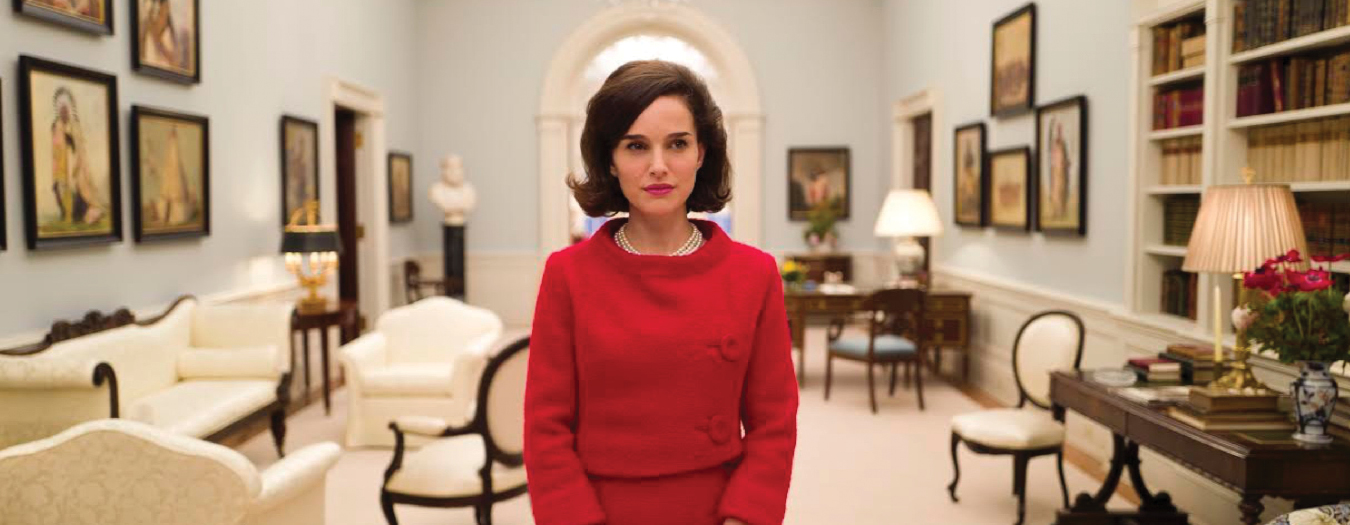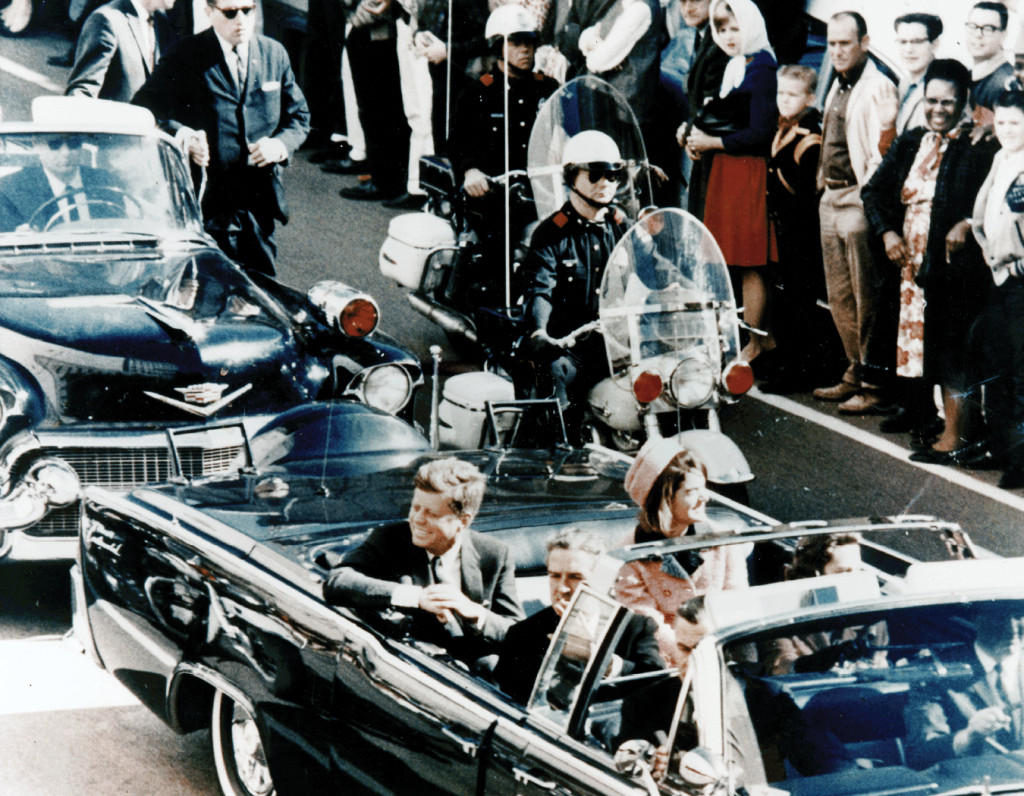An intense look into the life of the First Lady immediately after the assassination.
By Thom Nickels
Look at photographs of the grassy knoll at Dealey Plaza in Dallas, Texas, where President John F. Kennedy’s motorcade sped away after an assassin’s bullets in 1963 changed the course of history, and you may find yourself imagining the pain the First Lady felt as she held her dying husband in her arms.
That horrific moment still lives in grainy newsreel footage, but it comes alive for us again in the form of Natalie Portman who plays Jacqueline Bouvier Kennedy in Pablo Larrain’s “Jackie,” an intense psychological biopic about the life of the First Lady immediately after the assassination.
Those dark days put the nation in mourning even as Jackie processed the shock alone, as the scene of Portman as Jackie scrubbing her face of her husband’s blood in the bathroom of Air Force One so chillingly details.
“Jackie” opens with the former First Lady being interviewed in the Kennedy Hyannis Port compound by Theodore H. White for Life magazine. White is played by Billy Crudup who captures the writer’s suave and erudite manner. Eager to make a name for himself in journalism, his engagement with Jackie has all the elements of a verbal fencing match. Jackie isn’t going to let him have her story without a struggle.
More therapist than journalist, Crudup’s White is patient to a fault but he’s not afraid to dig deep. He wants Jackie to spill her guts and relive what she saw and felt that day near the grassy knoll. Jackie acquiesces in small doses and gives White an occasional Big Feeling Moment, but then states, “Of course this is off the record.”
Portman is so believable as the First Lady that we begin to realize that this is much more than a film but, as has been stated, “The scariest history lesson ever.”
The nearly flawless script by Noah Oppenheim makes this 95-minute film seem much shorter. It also makes us not care so much that JFK (Caspar Phillipson) appears only a few times in quick juxtaposed flashbacks.
Portman’s Jackie opens a world heretofore unseen: We are with her as she walks through the rooms of the White House like a numb, disembodied spirit. On her first night in Washington after the assassination we see her taking off her blood stained clothes and breaking down in the shower. Then she puts on a chiffon nightgown and in a radiant gesture, crawls into bed in a lounging position and lights a cigarette to life.
Alone with her children, who can’t understand where daddy is and why he won’t be coming home, Jackie’s sense of alienation grows. The viewer feels her growing displacement and the fact that the White House is now alien territory, a morgue of memories filled with mementos that she must wrap up and put into boxes for her new home in New York City.
If there is one flaw in the film it is the odd choice of actors portraying Caroline (Sunnie Pelant) and young John John (Brody and Aiden Weinberg). Their odd physical features are far removed from the standard Kennedy and Bouvier good looks.
A decidedly unhappy moment in the film occurs when Jackie’s walks in on Lyndon Johnson and Lady Byrd picking out new White House wall paper; in an instant we see what the widow sees: her famous remodeling of the White House going up in smoke. But all is not perfect ladylike composure, especially when she loses her temper with brother-in-law Bobby (Peter Sarsgaard) and with the Secret Service over arrangements for the presidential funeral.
Priests are rarely portrayed well in Hollywood, but John Hurt as Father Richard McSorley emotes the seasoned wisdom of a long suffering philosopher. When he walks with Jackie in a tree-lined Washington park on cold gray winter afternoons, he does his best to answer her questions concerning the mystery and (possible) futility of life.
Happily, Jackie feels little futility when she decides to promote the legacy of Camelot after playing and replaying the music that she and Jack had so enjoyed in happier days. If she cannot have her husband back, she can at least extract ‘revenge’ in the form of an historic legacy that will live well into the ages.


